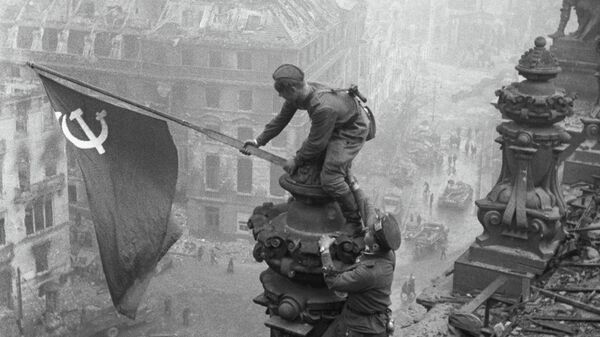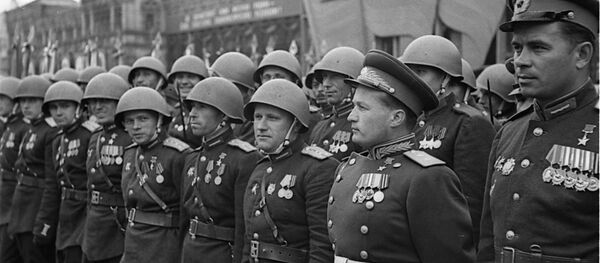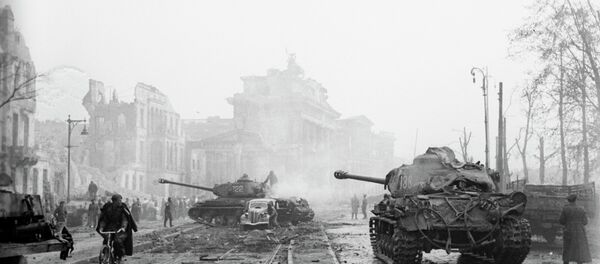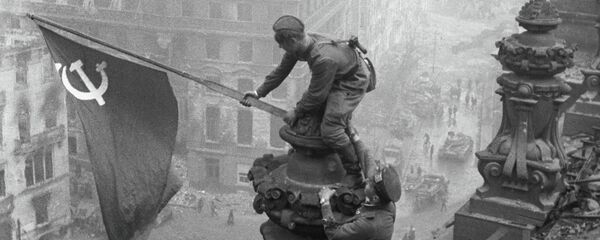Over 40 percent of respondents thought that United States actions were decisive in freeing the continent.
"The reason that such a low percentage of Europeans believe that the hardest part of the war was fought on the Eastern front is the Cold War, which is again being fueled," Stevan Gajic, research fellow at the Institute for European Studies in Belgrade, Serbia, told Sputnik.
Even fewer are aware of the role the Soviet Army played in the fight against Japan on the mainland, according to Gajic.
"All mention the battle in the Pacific Ocean – Americans against the Japanese – but little is said about the fact that millions of Soviet soldiers together with the Chinese and the Mongols fought together against Japan."
William Keylor, Professor of international relations and history at the Frederick S. Pardee School of Global Studies at Boston University agreed, stating that current European views on WWII history were formed during decades of cold rivalry between the West and the East.
"It is no surprise that people in Western Europe consider the American army to be the major contributor to the victory against Nazi Germany. That is the legacy of the Cold War, when the US and its European allies considered the Soviet Union a grave threat to the security of the world."
Gajic said that a powerful anti-Communist and anti-Soviet sentiment caused people to forget the "absolutely critical role" played by the Red Army in the defeat of the Third Reich.
"If the poll had asked the Russian people the same question, I have no doubt that at least 90% of them would say that it was the Red Army that defeated Nazi Germany in what they still call the Great Patriotic War," he said.
According to Aidan Stradling, Director of the Anglo-Russian Centre in North East England, a lot of young people today are "unaware of what the Soviet Union was as well as what it did."
"The Cold War went on for many more years than the Second World War, and I think it affected the fact that [the] Russia[n] [victory] today is unknown amongst British people," he explained.
Stradling told Sputnik that he speaks to many business professionals in the United Kingdom, who are willing to work in Russia, who have done their research and understand very well the role of the Soviet Union in Second World War.
Cooperation between the United Kingdom and the Soviet Union between 1941 and 1945 was intense but not long-lasting compared to the decades-long Cold War, and is no longer part of people's knowledge and understanding, Stradling said.
Up to 70 million people were killed in World War II, including an estimated 27 million Soviet Union nationals, both civilian and soldiers.
The Third Reich was defeated by a unified effort of allied powers including the United States, the United Kingdom and the Soviet Union, with the Soviet Army playing the key role in liberating Eastern Europe.




